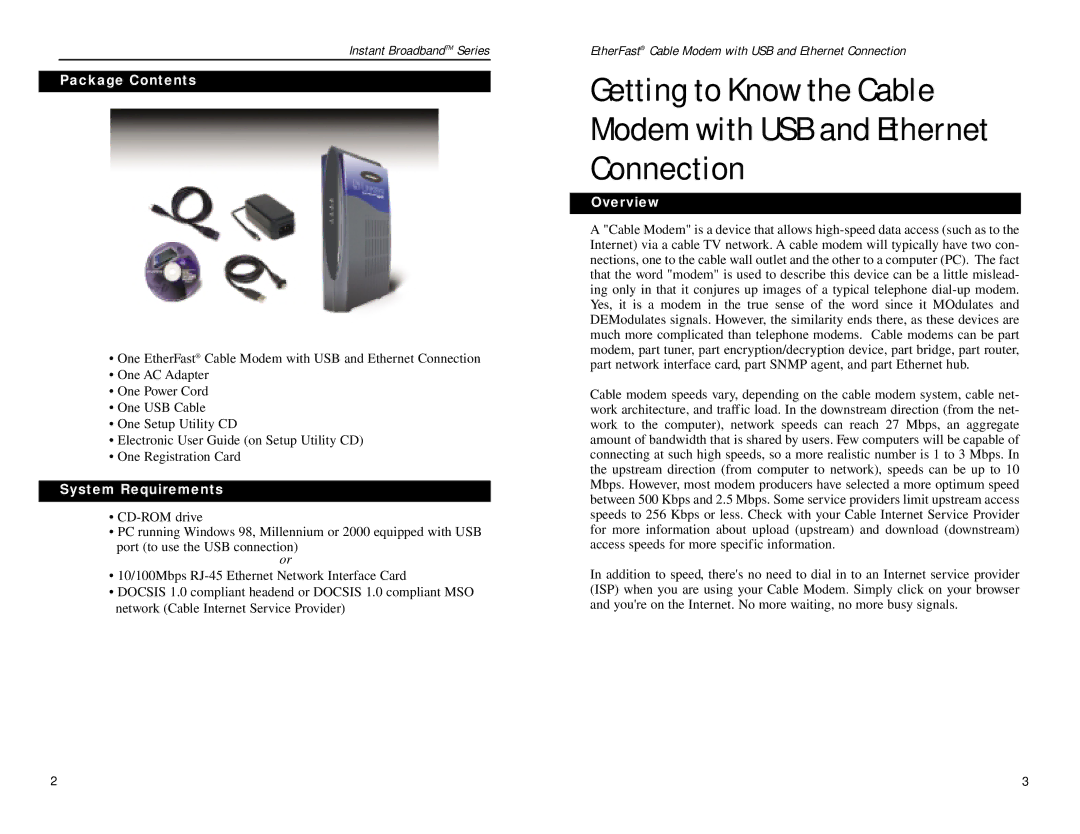
Instant BroadbandTM Series
Package Contents
•One EtherFast® Cable Modem with USB and Ethernet Connection
•One AC Adapter
•One Power Cord
•One USB Cable
•One Setup Utility CD
•Electronic User Guide (on Setup Utility CD)
•One Registration Card
System Requirements
•
•PC running Windows 98, Millennium or 2000 equipped with USB
port (to use the USB connection) or
•10/100Mbps
•DOCSIS 1.0 compliant headend or DOCSIS 1.0 compliant MSO network (Cable Internet Service Provider)
EtherFast® Cable Modem with USB and Ethernet Connection
Getting to Know the Cable Modem with USB and Ethernet Connection
Overview
A "Cable Modem" is a device that allows
Cable modem speeds vary, depending on the cable modem system, cable net- work architecture, and traffic load. In the downstream direction (from the net- work to the computer), network speeds can reach 27 Mbps, an aggregate amount of bandwidth that is shared by users. Few computers will be capable of connecting at such high speeds, so a more realistic number is 1 to 3 Mbps. In the upstream direction (from computer to network), speeds can be up to 10 Mbps. However, most modem producers have selected a more optimum speed between 500 Kbps and 2.5 Mbps. Some service providers limit upstream access speeds to 256 Kbps or less. Check with your Cable Internet Service Provider for more information about upload (upstream) and download (downstream) access speeds for more specific information.
In addition to speed, there's no need to dial in to an Internet service provider (ISP) when you are using your Cable Modem. Simply click on your browser and you're on the Internet. No more waiting, no more busy signals.
2 | 3 |
